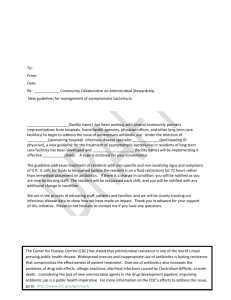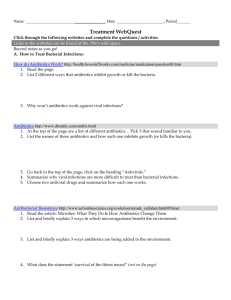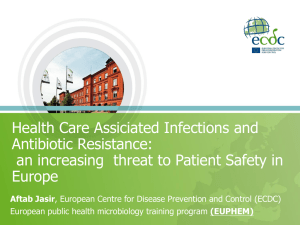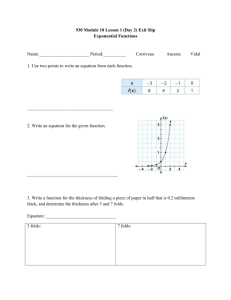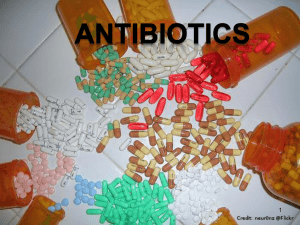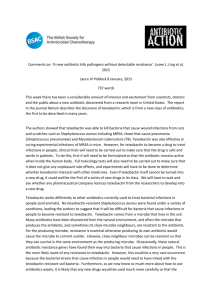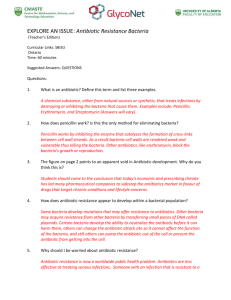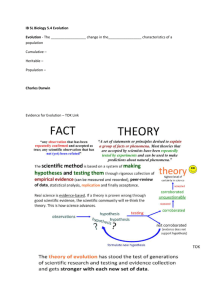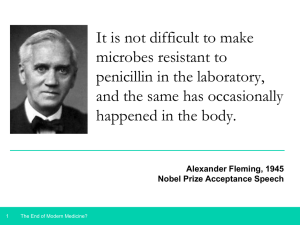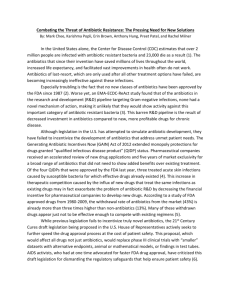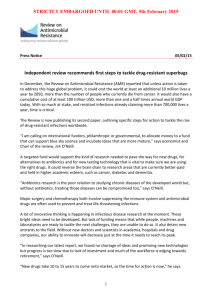Antibiotic Webquest
advertisement
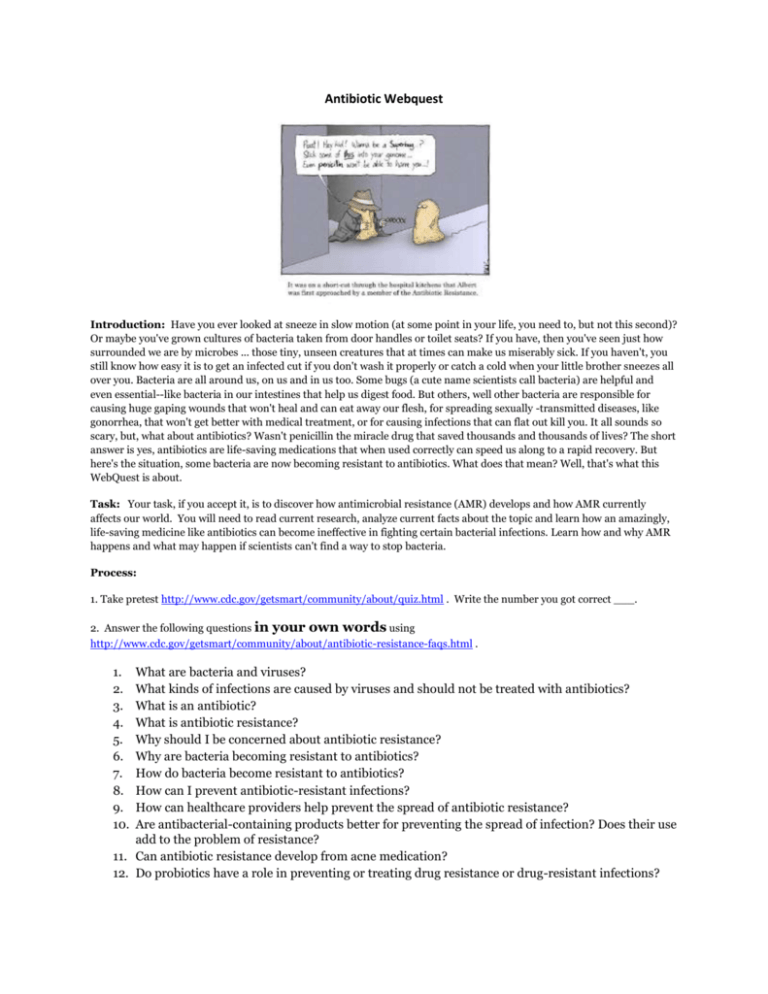
Antibiotic Webquest Introduction: Have you ever looked at sneeze in slow motion (at some point in your life, you need to, but not this second)? Or maybe you've grown cultures of bacteria taken from door handles or toilet seats? If you have, then you've seen just how surrounded we are by microbes ... those tiny, unseen creatures that at times can make us miserably sick. If you haven't, you still know how easy it is to get an infected cut if you don't wash it properly or catch a cold when your little brother sneezes all over you. Bacteria are all around us, on us and in us too. Some bugs (a cute name scientists call bacteria) are helpful and even essential--like bacteria in our intestines that help us digest food. But others, well other bacteria are responsible for causing huge gaping wounds that won't heal and can eat away our flesh, for spreading sexually -transmitted diseases, like gonorrhea, that won't get better with medical treatment, or for causing infections that can flat out kill you. It all sounds so scary, but, what about antibiotics? Wasn't penicillin the miracle drug that saved thousands and thousands of lives? The short answer is yes, antibiotics are life-saving medications that when used correctly can speed us along to a rapid recovery. But here's the situation, some bacteria are now becoming resistant to antibiotics. What does that mean? Well, that's what this WebQuest is about. Task: Your task, if you accept it, is to discover how antimicrobial resistance (AMR) develops and how AMR currently affects our world. You will need to read current research, analyze current facts about the topic and learn how an amazingly, life-saving medicine like antibiotics can become ineffective in fighting certain bacterial infections. Learn how and why AMR happens and what may happen if scientists can't find a way to stop bacteria. Process: 1. Take pretest http://www.cdc.gov/getsmart/community/about/quiz.html . Write the number you got correct ___. 2. Answer the following questions in your own words using http://www.cdc.gov/getsmart/community/about/antibiotic-resistance-faqs.html . 1. 2. 3. 4. 5. 6. 7. 8. 9. 10. What are bacteria and viruses? What kinds of infections are caused by viruses and should not be treated with antibiotics? What is an antibiotic? What is antibiotic resistance? Why should I be concerned about antibiotic resistance? Why are bacteria becoming resistant to antibiotics? How do bacteria become resistant to antibiotics? How can I prevent antibiotic-resistant infections? How can healthcare providers help prevent the spread of antibiotic resistance? Are antibacterial-containing products better for preventing the spread of infection? Does their use add to the problem of resistance? 11. Can antibiotic resistance develop from acne medication? 12. Do probiotics have a role in preventing or treating drug resistance or drug-resistant infections? 3. How does antimicrobial resistance occur? Watch this video http://www.fda.gov/downloads/AnimalVeterinary/SafetyHealth/AntimicrobialResistance/UCM134417.wmv Explain in words or pictures how antimicrobial resistance occurs - include all methods. 4. What are the different viewpoints on antimicrobial resistance? 1. What is the viewpoint of World Health Organization? http://www.who.int/mediacentre/factsheets/fs194/en/ 2. What is the viewpoint of CDC? http://www.cdc.gov/drugresistance/index.html 3. What is the viewpoint of science? http://www.niaid.nih.gov/topics/antimicrobialResistance/Understanding/Pages/causes.aspx http://harvardmagazine.com/2014/05/superbug 4. What is the viewpoint of the consumers? http://www.consumerreports.org/cro/news/2014/10/5-reasons-to-skip-antibacterial-soap/index.htm http://www.consumerreports.org/cro/news/2014/05/should-i-take-advantage-of-hand-sanitizers-in-publicplaces/index.htm 5. Research antibiotic controversy of your choice. (ex. Does the use antibiotics in livestock influence AMR? Does the widespread use of antibiotics contribute to AMR? Could essential oils be the new antibiotics? What is the post-antibiotic era? Your question:

